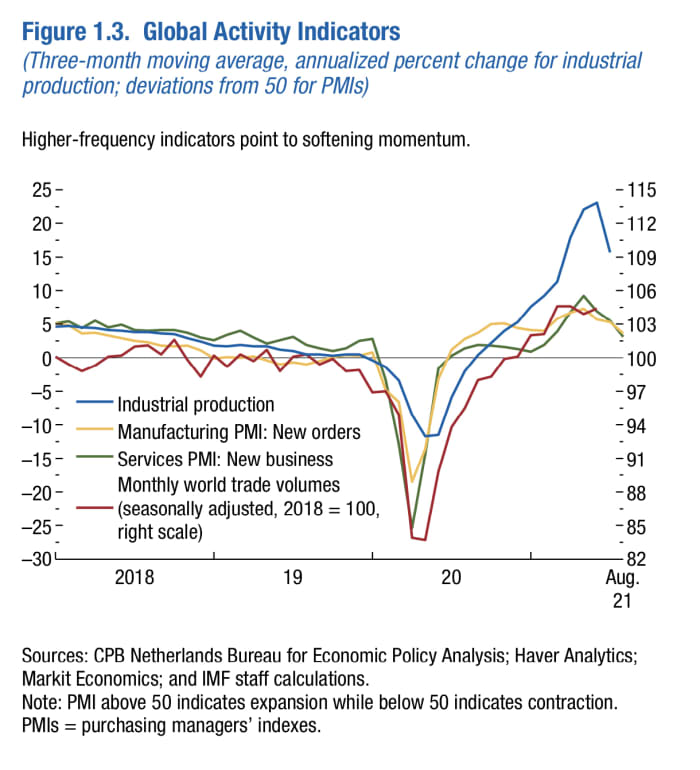This post was originally published on this site
The global economy is losing momentum, hamstrung by the pandemic, while rising inflation gives governments and central banks less room to maneuver, the International Monetary Fund said Tuesday.
Supply disruptions have led to lower growth in the richest economies while worsening pandemic dynamics are slowing the poorest countries.

This weakness is partially offset by stronger near-term prospects for commodity-exporting, emerging-market economies.
The IMF now sees global growth of 5.9% this year — down one-tenth of a percent from July — and then slowing to 4.9% growth in 2022.
The IMF cut its U.S. growth estimate for 2021 by 1% to 6%, its German forecast by five-tenths to 3.1% and its Canadian forecast by six-tenths to 5.7%.
| Area | 2021 growth projection | Difference from July forecast | 2022 growth projection | Difference from July |
| World output | 5.9% | -0.1% | 4.9% | Unch |
| U.S. | 6 | -1.0% | 5.2% | 0.3% |
| Euro-area | 5% | 0.4% | 4.3% | Unch |
| Japan | 2.4% | -0.4% | 3.2% | 0.2% |
| U.K. | 6.8% | -0.2% | 5% | 0.2% |
| Canada | 5.7% | -0.6% | 4.9% | 0.4% |
| China | 8% | -0.1% | 5.6% | -0.1% |
| India | 9.5% | Unch | 8.5% | Unch |
| Brazil | 5.2% | -0.1% | 1.5% | -0.4% |
| Russia | 4.7% | 0.3% | 2.9% | -0.2% |
Beyond 2022, global growth is expected to moderate to about 3.3% over the next few years.
Inflation was revised higher and it is more likely to move higher than moderate, the international agency said.
The IMF now sees consumer inflation in rich countries rising by 2.8% this year — up four-tenths from July — and 2.3% in 2022.
The IMF predicted “amid high uncertainty” that headline inflation will return to pre-pandemic levels by mid-2022. There are upside risks to this forecast for the United States and the U.K., the agency warned.
Global central banks, including the Federal Reserve, can generally “look through” transitory increases in inflation but be prepared to act quickly if the underpinnings of prices rise precipitously, the IMF said.


